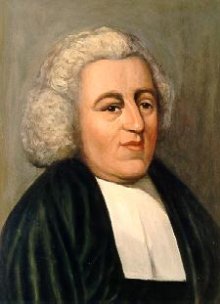John Newton
Anglican clergyman, slave trader and abolitionist (1725–1807) From Wikipedia, the free encyclopedia
John Henry Newton, Jr. (July 24, 1725 – December 21, 1807) was a slave ship captain who became an Anglican clergyman.[2] He was the author of many hymns, including "Amazing Grace". This hymn talks about the Divine grace which reached out to a "wretch" (evil person) like himself. After he was saved from his sinful life he worked hard to stop the transportation of slaves on English ships. He worked with the member of parliament, William Wilberforce. The slave trade was outlawed in 1807 in England and other countries soon did the same. [3] This law was passed just 9 months before Newton's death.
John Newton | |
|---|---|
 Contemporary portrait of Newton | |
| Personal details | |
| Born | 4 August [O.S. 24 July] 1725[1] Wapping, London, Great Britain |
| Died | 21 December 1807 (aged 82) London, United Kingdom |
| Spouse |
Mary Catlett
(m. 1750; died 1790) |
| Occupation | British sailor, slaver, Anglican clergyman and prominent slavery abolitionist |
References
Other websites
Wikiwand - on
Seamless Wikipedia browsing. On steroids.
